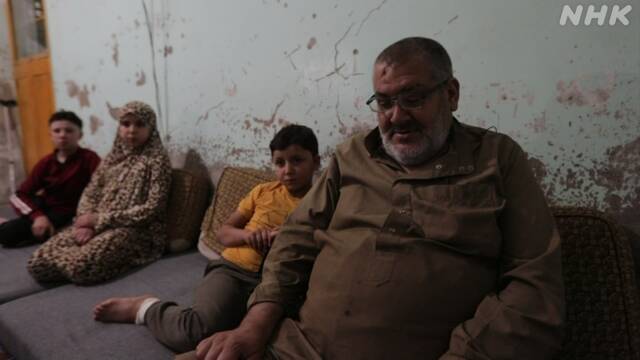The UN Security Council passed a resolution on a "support route" to bring humanitarian aid by land to Syria, where the civil war continues, but it was rejected due to the conflict between Russia and the West, and humanitarian assistance became impossible. Concerns are growing.
In the northwestern part of Syria, where turmoil and civil war have continued for more than 10 years, citizens fleeing the attacks of the Assad administration are living in refugee camps, etc. We have established a "support route" to bring in food and medicine.
However, Russia, backed by the Assad regime, has argued that humanitarian assistance should be provided through the Assad regime, not this route.
With the deadline for the resolution stipulating the support route approaching, the Security Council passed a resolution on the 8th to extend the deadline by one year, and although 13 countries agreed, China abstained and Russia vetoed. Was rejected.
In addition, Russia submitted a resolution limiting the extension to six months, with Russia and China in favor, while the United States, Great Britain and France opposed, and the remaining ten countries abstained.
As the conflict between Russia and Europe and the United States deepens over the situation in Ukraine, the two sides are planning to continue discussions in a way that the division of the Security Council has been highlighted again, but the deadline for the support route will expire on the 10th of this month, so support will be provided. There is growing concern that it will not be possible.
Voices of disappointment and anger from refugees in Syria
Internally displaced persons in Syria have heard voices of disappointment and anger.
Of these, Mustafa Shaavan, 50, who lives in northwestern Idlib, said, "We have finally come to the point where they are trying to starve us to death without sending food. Russia and the Assad regime are bombing Syria. Isn't it enough to kill people or drive them away from their hometown? "
Seven years ago, in the northern Syrian town of Barb, a Russian army supporting the Assad regime killed his eldest son, and Shaavan himself suffered a serious injury and was seven years old at the time. The second son of Syria lost his right leg.
Currently, I work with his second son to sell firewood, but the daily income of the two people is about 160 yen in Japanese yen, and food and medicines from the United Nations cannot cover the cost of food and treatment for chronic diseases. I live by relying on the support of.
Doctors Without Borders "People's Lifeline Patients' Life Will Be Critical"
Doctors Without Borders, an international NGO that provides medical support around the world, started its activities in northern Syria in 2012, and currently has 7 hospitals, 12 clinics, and internally displaced persons' camps in various places. We provide medical support such as medical treatment and vaccination, and hygiene support such as water purification.
We then use support routes that focus on medical supplies such as medicines and vaccines that are indispensable for such activities to Syria.
Doctors Without Borders Japan's manager, Kanasugi Shiko, commented on the situation in Syria: "Since entering this year, the food crisis caused by the situation in Ukraine and the rise in prices of daily necessities including fuel have hurt our lives. People with illnesses who are soaring and have to keep taking medicine are also very concerned about their physical condition, "he said.
On top of that, "The humanitarian aid route is the only route that allows humanitarian aid supplies to be brought in across national borders, so it can be said to be the lifeline of people in northwestern Syria. In addition, many local medical facilities will run out of supplies and the lives of patients will be at stake, "he said, calling for the maintenance of humanitarian aid routes.

